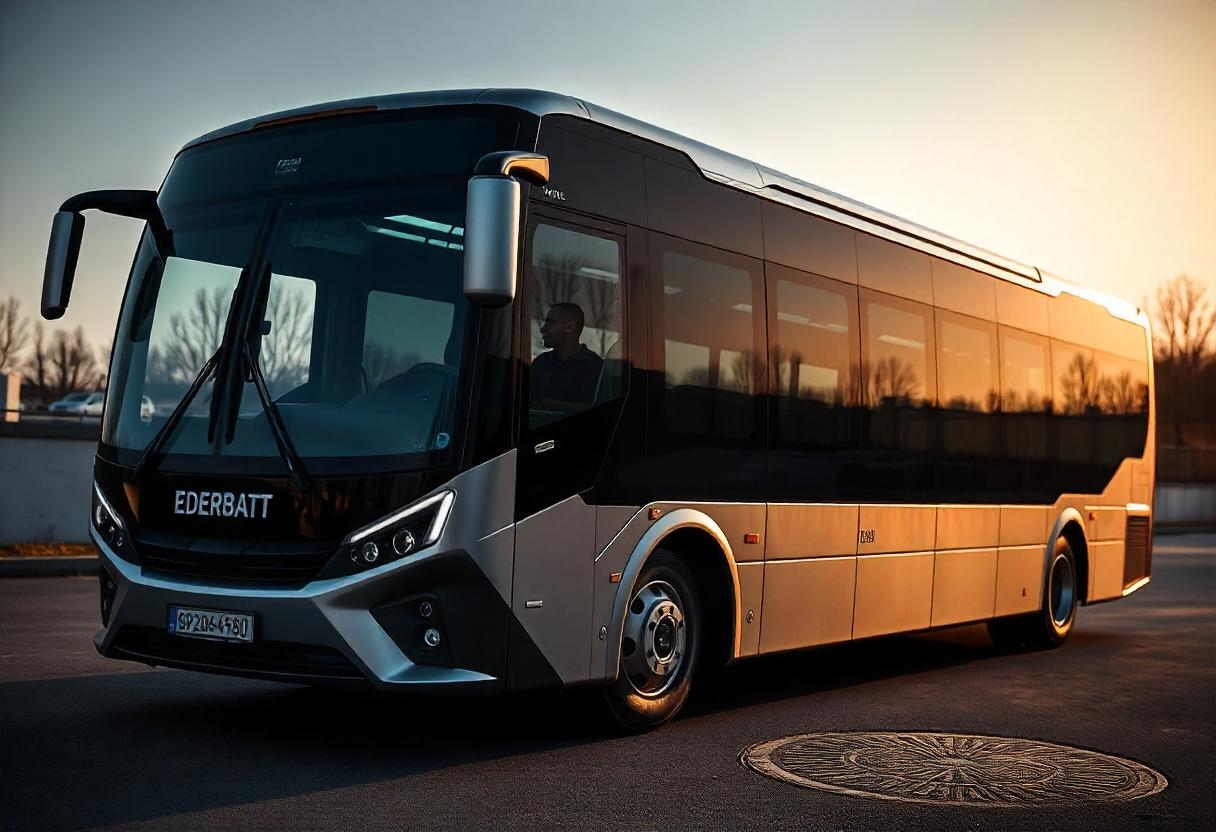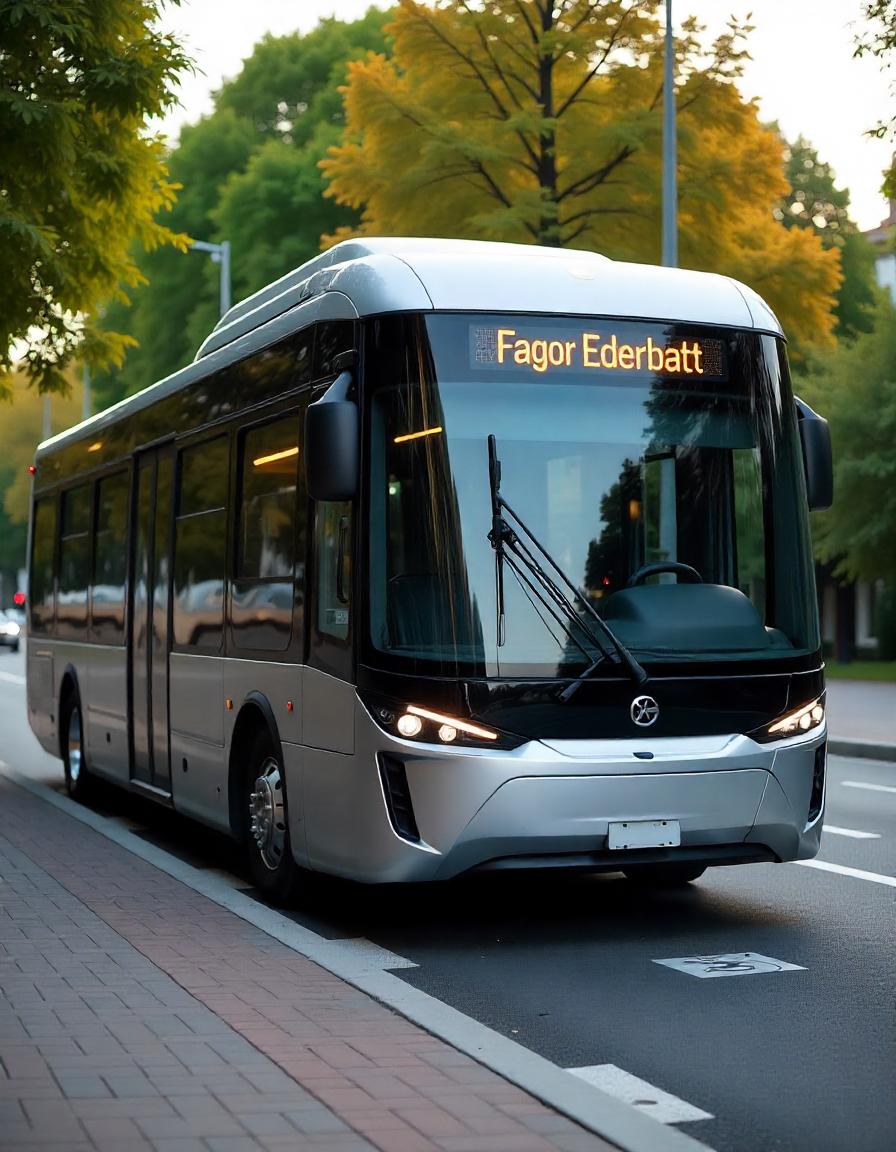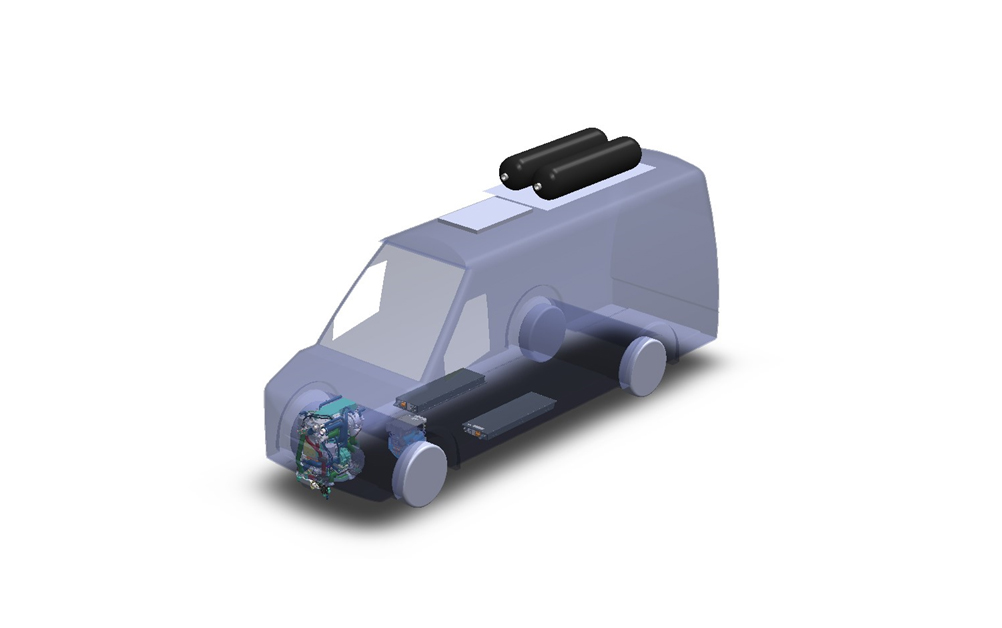Applications for Full Electric and Hydrogen Fuel Cells eBuses
Fagor Ederbatt’s High Voltage Battery System is a modular system that allows for easy entrainment of the necessary energy, facilitating the placement of Battery Racks in different areas of the vehicle due to the possibility of horizontal or vertical mounting.
This in series produced solution is compatible with market standards and is supplied with a SuperMaster BMS that allows parallelisation architecture of all Battery Racks in the vehicle, being the only electrical-electronic interface with the Vehicle Control Unit (VCU).
EDERBATT series-produced Battery Racks have been certified according to the standards required for eBus applications, such as those relating to R100.03, R10.06, UN 38.03.
Full Electric Bus
Use case for full eBuses and shuttles, with autonomous driving capabilities, which are manufactured in different dimensions, thus requiring a modular system to carry the necessary energy combining floor mounting as well as in other areas of the vehicles.
6.9 m Electric Bus
4 battery racks floor mounting, horizontal positioning
8.4 m Electric Bus
7 battery racks floor and rear mounting, vertical and horizontal positioning
12.5 m Electric Bus
10 battery racks, horizontal positioning
Hydrogen Fuel Cell Mini Bus
Conversion of minibuses operating in urban fleets by incorporating a Fuel Cell-based powertrain (FCEV), supported by a High Voltage Battery System to manage the energy required for vehicle operation. Fagor Ederbatt’s Battery System facilitates the placement of Battery Racks in vehicles that originally operated with an ICE-based powertrain.
Battery System Specifications
The modular high-voltage battery system for electric bus (eBus) use cases is based on battery racks with an installed energy of 35 kWh with electrical architecture options of 333V or 666V nominal voltage and based on NMC chemistry.
With the addition of the Super Master BMS, between 2 and 20 battery racks can be stacked to supply the required power. The battery rack housings feature a universal mechanical interface that facilitates anchoring to the vehicle in multiple configurations.
Our process for eBus: Electric and Hydrogen Fuel Cell Buses
We focus on offering personalized solutions through three steps. We seek to understand your needs, model appropriate solutions, evaluate customization options, and agree on final features.
This approach ensures that the service adapts to your objectives and context, providing an effective and satisfactory experience.
Let’s create the future together

Ricardo Valoria
Business Development, Marketing and Sales
Contact us and tell us about your project





